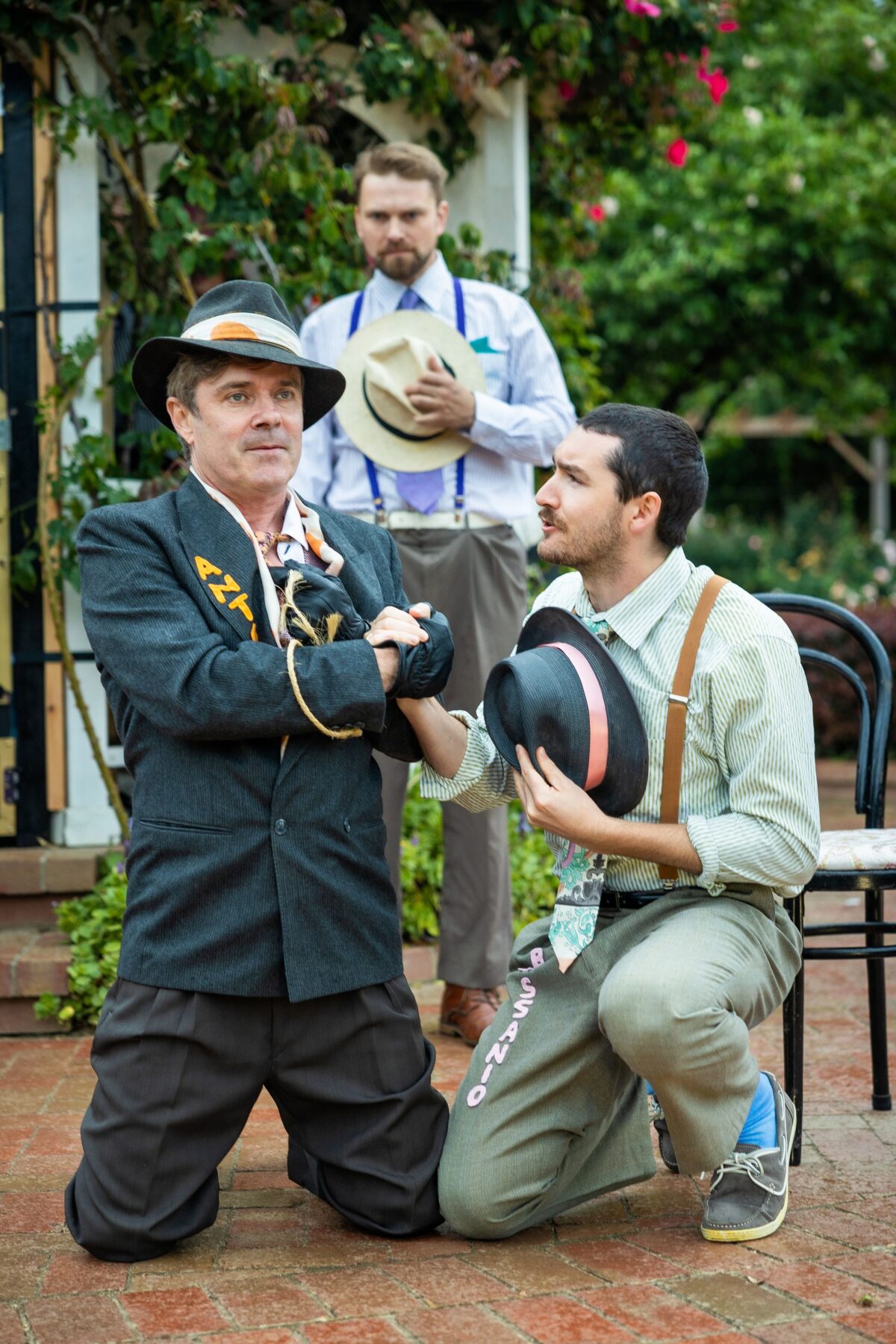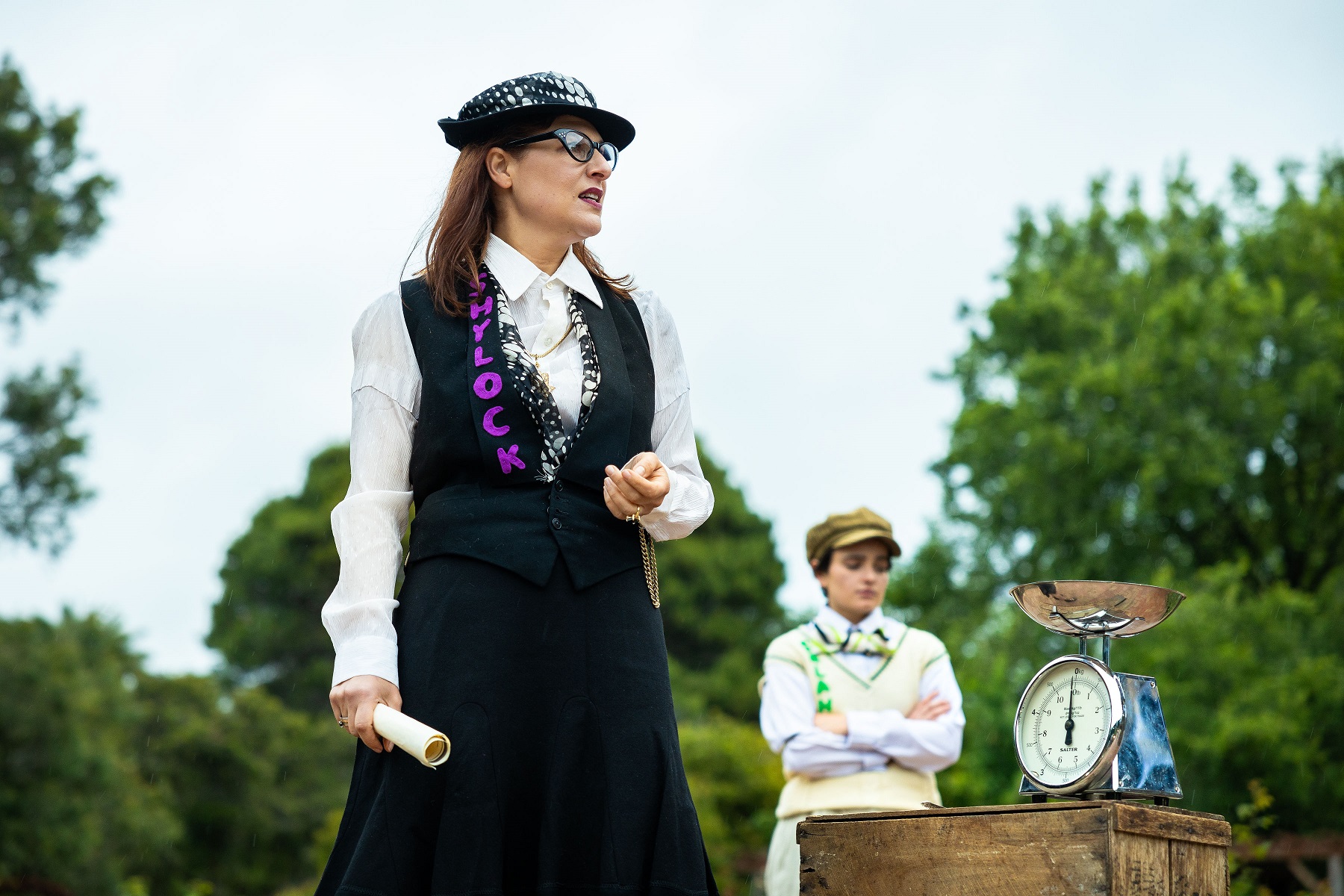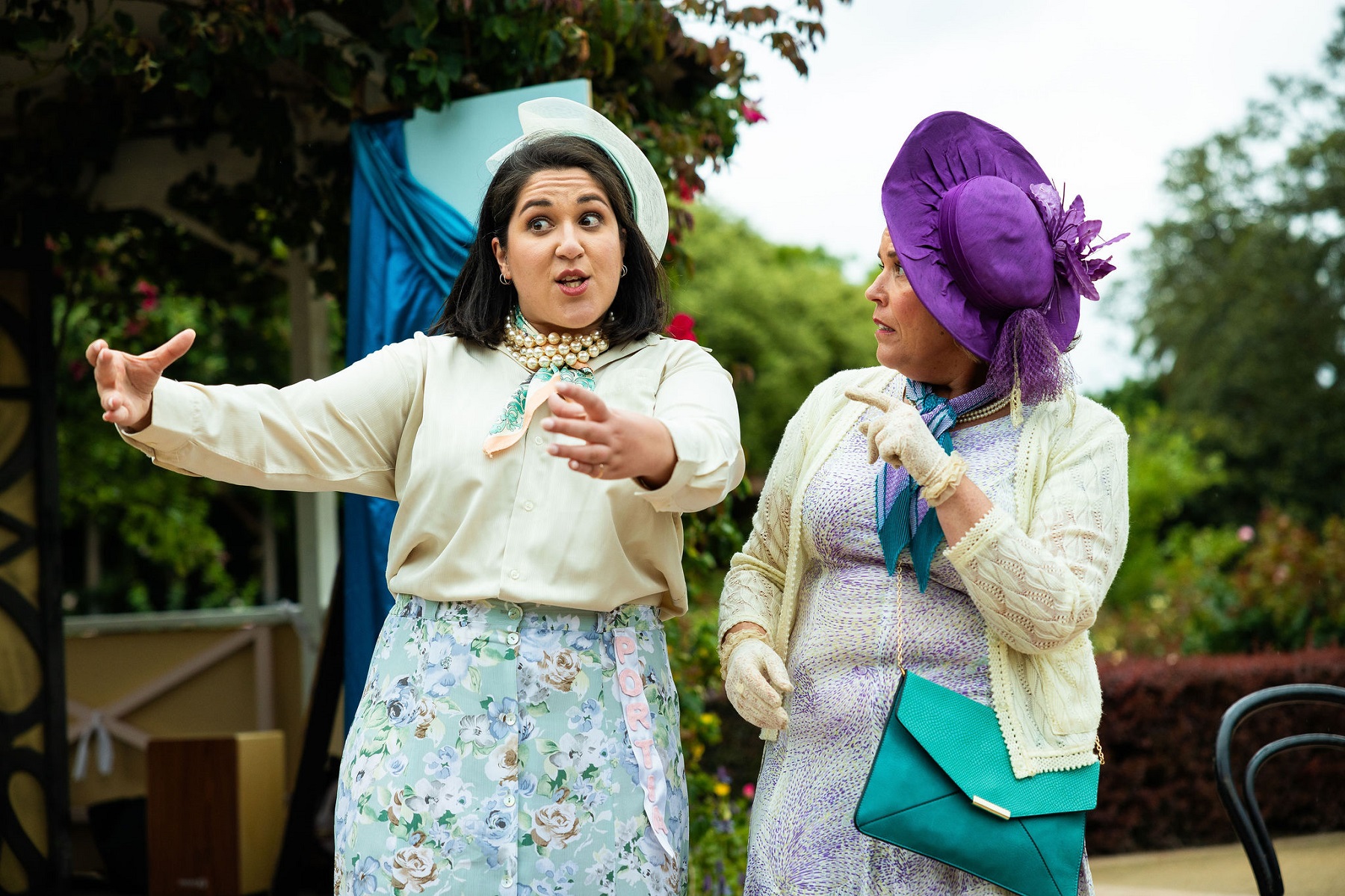The delivery of the many humorous lines and actions in The Merchant of Venice ensures the Melbourne Shakespeare Company’s latest production presents as a comedy.

Given the storyline, performing one of William Shakespeare’s best known but sometimes controversial plays could be described as brave.
However, thanks to the work of the cast, the introduction of modern music, including such delights as Hit the Road Jack, some audience interaction and the outdoor setting of the St Kilda Botanical Gardens’ Rose Garden there are smiles rather than consternation over the play’s plot.
Written around 1596, The Merchant of Venice tells of Bassanio (Orion Carey-Clark), a noble but penniless Venetian, who asks his wealthy merchant friend Antonio (Chris Broadstock) for a loan so he can court the heiress Portia (Eleni Vettos).

Antonio, whose money is invested in shipping, borrows the sum from Shylock (Shelley Krape), a Jewish moneylender, on the condition that, if the loan cannot be repaid in the time specified, Antonio will forfeit a pound of flesh.
Antonio is reluctant to do business with Shylock, whom he despises for several reasons including Shylock’s religion.
Meanwhile to marry Portia, Bassanio must meet the terms of her father’s will by choosing the correct casket which contains her portrait. There are three caskets to choose from – one made of gold, one of silver and one of lead.
Two other suitors, the Prince of Morocco (Emma Austin) and Prince of Aragon (Donald McManus) have been unsuccessful and there’s much relief when Bassanio selects the correct box. At the same time Bassanio’s friend Gratiano (Andrew Cullimore) falls for and marries Portia’s servant and confidante Nerissa (Amanda McKay).
Then news comes that Antonio’s ships have been lost at sea and he will be unable to pay Shylock back the money he owes. Shylock then demands the pound of flesh. Part of Shylock’s desire for vengeance is motivated by the way in which the Christians have banded together to enable her daughter Jessica (Lucy May Knight) to elope taking with her a substantial amount of wealth and becoming the bride of the Christian Lorenzo (Jackson Cross).

Shylock’s plan is foiled by Portia, disguised as a male lawyer, who turns the tables in court by arguing Shylock can only take flesh. If any blood is spilled then the law says Shylock must die. As a result, the loan is cancelled, and Shylock is ordered to give half of her estate to Antonio. He agrees not to take the money if Shylock converts to Christianity and restores her disinherited daughter to her will. Shylock has little choice but to agree.
In directing this production director Ben Margalith recognises there may be issues.
“The Merchant of Venice is often described as a problem play, but why?” he asks.
“At its core, this is a standard by the book Shakespearean comedy: the villain’s plans get foiled, the lovers get married, and everyone lives happily ever after. It’s also extremely funny. So, where is the problem?
“In a word, the problem is Shylock. Shylock, a word steeped in a hodgepodge of antisemitic tropes, unconscionable and predatory money lending, and echoing a caricature of villainy and duplicity. So great is the shadow of the word Shylock that we as an audience lose sight of the human struggle at the foundation of this play.”
Interestingly in this production Margalith portrays Shylock as ” a successful self-made entrepreneur; a Jewish mother in a society that labels her an outcast; and in the male-dominated world of the venetian Rialto, she is a pillar of wealth and power.”

At the same time audience members are warned at the start of the play that it does portray a community starkly divided by hatred, antisemitism, racism, and mistrust in a way that is not and should not be completely comfortable.
But then, as Margalith also stresses, despite the harmful elements, The Merchant of Venice is a comedy.
And thanks to the work of the leads and those in supporting roles including Maxwell Simon as Shylock’s clownish servant Lancelot Gobbo, and McManus and Austin as the two Princes, and the music there are plenty of laughs.
The Merchant of Venice is playing in the St Kilda Botanical Gardens Herbert Street St Kilda until December 23. Visit the Melbourne Shakespeare Company’s website for more information and tickets.
Jenny Burns attended the opening night of The Merchant of Venice as a guest of the production company.
*Photo credit: Chelsea Neate.
- live shows, Melbourne, reviews
Subscribe My Newsletter
Unsubscribe at any time.




